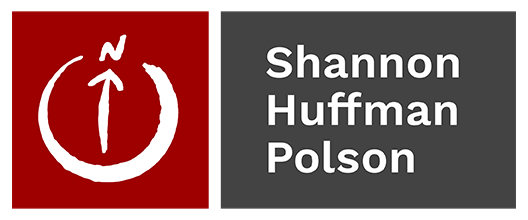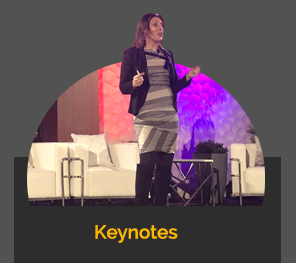- Building Courageous Leaders for a Better World
November 2022
November 2022
As Hitler continued to consolidate power fueled by rhetoric and fear, Bonhoeffer was often a single voice amid the rising ride of racism and hate. He began to question himself. How could he be sure that he was right, if others were not compelled to join this resistance? He moved to London for 18 months, running two parish churches and continuing to support his friends in Germany, but even that was too far from what was happening. He returned to Germany and helped found the Confessing Church, which followed the tenets of the Sermon on the Mount, and spoke out strongly against racism and the state suppression of those it deemed undesirable or deviant.
His new church community, a minority in Germany, began a seminary (Finkenwalde) training ordinates in following the Gospel and not the state, with a mission of working in community and for those who were less advantaged or even targeted. Those he trained in the Confessing Church moved out to work in the increasingly hostile and dangerous world.
The Third Reich began to arrest members of Bonhoeffer’s church. Some were put in concentration camps, and others killed. When the Reich mandated all pastors take an oath of allegiance to Hitler, most of the Confessing Church pastors opted to take the oath. Bonhoeffer was horrified, and felt increasingly isolated and alone.
In 1939, the air smelled of war. Bonhoeffer took friends’ advice to go to the states, returning to the seminary where he had studied in NY. Immediately upon arrival, he was wracked with guilt at his absence from his country in a time of peril. He returned to Germany, having decided that he would accept the moral weight and the consequences of participating in an assassination attempt of Hitler. Through a family connection, he took a government position officially collecting information for the Nazi party from travels and discussions with pastors; at the same time, he coordinated with others in the assassination plot.
This was his greatest challenge. Not the specifics of his work as a double agent, but wrestling with the moral obligation of his work against the sin of tyrannicide.
In April 1943, Bonhoeffer was arrested and imprisoned. He was moved into Buchenwald concentration camp, and then to the Flossenburg concentration camp. Two weeks before American liberation, he and five other prisoners were hanged.
(Give yourself the gift of reading this book, along with other works of Bonhoeffer).
What do we learn from Bonhoeffer?
The moral imperative of courageous and consistent action in the face of wrongdoing
That when current institutions don’t work to further progress, sometimes you have to create your own.
when Bonhoeffer realized that the German Evangelical church was under state control and supporting the right-winged nationalism of Hitler’s ascent, he understood he had to begin again with the Confessing Church, strictly differentiating it in both ideology and action.

Get your copy of our most popular download— The Grit Factor manifesto— today! www.thegritinstitute.com/manifesto
It is not enough simplify to react to wrongdoing; to make change, a leader must have a vision in order to build
in creating the Confessing Church, Bonhoeffer did not only speak out against the wrongdoing of the “German Christinas,” but aligned the vision of the new church with a specific reference and guiding star: the Sermon on the Mount.
that failure is a part of the journey; what is important is to continue on
Early on, Bonhoeffer was asked to perform a marriage between two people, one of whom was of Jewish descent. Worried about his safety, he opted not to perform the wedding. He would later say that refusal haunted him the rest of his life.
That courage can be a lonely path, and that sustainable action comes through community support
As Koehn explains: “The ability to develop and sustain an effective community is a critical skill for today’s leaders…community meant more than sharing a mission and acting together toward that end. It meant being bound together not only by obligation, but by mutual caring and affection…Bonhoeffer couldn’t have navigated through the crisis of confidence that he faced in NY in mid-1939 without the anchoring comradeship he’d experienced among his brethren in Germany.”
“From Bonhoeffer’s perspective, not only did a healthy community help an individual discover his own deep-seated confidence, it also helped him forge a worthy mission.”
Don’t get comfortable, ever.
Bonhoeffer saw that even with its vision and execution, that the institution he created was focusing too much on issues of the various factions inside as opposed to what was happening around them, and ultimately the institution did not stand up to the pressures at hand. Bonhoeffer had to be willing to continue the world regardless.
That leadership is a balance between the hard skills — decisiveness, vision, planning— and the softer skills of listening, engaging, connecting
Koehn writes:
In addition to the rules of the seminary, “another key element in the group’s sense of shared purpose was Bonhoeffer’s kindliness, including his small acts of service and generosity…
connection in person was an important element. Bonhoeffer published a newsletter (illegal under the regime) when the church was prohibited from living together at the seminary. He also invited ordinands to retreats.
“Some of what made him credible as a leader was his ability to listen well and take others seriously on their own terms. Some of his power came from his ability to see and articulate the big picture…and his ability to move seamlessly between righteous ideals and the concrete actions needed to achieve those ideals.”
Facing the Wind. There are few examples that so capture the humanity of the struggle, and the triumph in the face of the ultimate sacrifice. I believe our world needs courageous leaders more than ever before. Will that be you?
With all my best and to your grit,
Shannon
PS: If you’re looking for books as gifts around the candles or the tree, check out my Bookshop suggestions!










